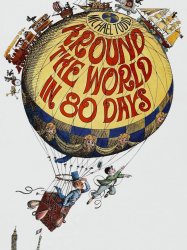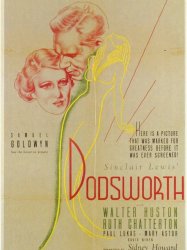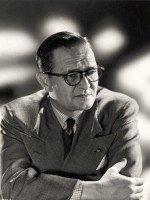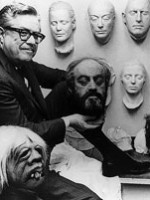David Niven is a Actor, Scriptwriter and Producer British born on 28 february 1910 at London (United-kingdom)

James David Graham Niven (1 March 1910 – 29 July 1983) was an English actor and novelist who was popular in Europe and in the United States. He may be best known for his roles as Squadron Leader Peter Carter in A Matter of Life and Death, as Phileas Fogg in Around the World in 80 Days and as Sir Charles Lytton, a.k.a. "the Phantom", in The Pink Panther. He was awarded the Academy Award for Best Actor for his performance in Separate Tables (1958).
Born in London, Niven attended Heatherdown Preparatory School and Stowe before gaining a place at the Royal Military College, Sandhurst. After Sandhurst he was gazetted a lieutenant in the Highland Light Infantry. Having developed an interest in acting, he left the Highland Light Infantry, travelled to Hollywood and had several minor roles in film. He first appeared as an extra in the British film There Goes the Bride (1932). From there, he hired an agent and had several small parts in films from 1933 to 1935, including a non-speaking part in MGM's Mutiny on the Bounty. This brought him to wider attention within the film industry and he was spotted by Samuel Goldwyn. Upon the outbreak of the Second World War, Niven returned to Britain and rejoined the army, being re-commissioned as a lieutenant.
Niven resumed his acting career after his demobilisation, and was voted the second most popular British actor in the 1945 Popularity Poll of British film stars. He appeared in A Matter of Life and Death (1946), The Bishop's Wife (1947) and Enchantment (1948), all of which received critical acclaim. Niven later appeared in The Elusive Pimpernel (1950), The Toast of New Orleans (1950), Happy Go Lovely (1951), Happy Ever After (1954) and Carrington V.C. (1955) before scoring a big success as Phileas Fogg in Michael Todd's production of Around the World in 80 Days. Niven appeared in nearly a hundred films, and many shows for television. He also began writing books, with considerable commercial success. In 1982 he appeared in Blake Edwards' final "Pink Panther" films Trail of the Pink Panther and Curse of the Pink Panther, reprising his role as Sir Charles Lytton.
After a whirlwind two-week romance in 1940, Niven married Primula Susan Rollo (18 February 1918, London – 21 May 1946), the aristocratic daughter of British barrister William Hereward Charles Rollo, who was a grandson of the 10th Lord Rollo, and Lady Kathleen Nina Hill, daughter of the 6th Marquess of Downshire. The couple had two sons: David, Jr. and Jamie. Primula, whom he called Primmie, died at age 28, only six weeks after moving to the U.S., of a fractured skull and brain lacerations from an accidental fall in the Beverly Hills, California home of Tyrone Power. While playing "sardines", she walked through a door believing it led to a closet. Instead, it led to a stone staircase to the basement.
Niven recalled this as the darkest period of his life, years afterwards thanking his friends for their patience and forbearance during this time. He claimed to have been so grief-stricken that he thought for a while that he had gone mad. Following a suicide attempt involving a handgun which failed to fire, he eventually rallied and returned to filmmaking.
In 1948 Niven met Hjördis Paulina Tersmeden (née Genberg, 1919–1997), a divorced Swedish fashion model. He recounted their meeting:I had never seen anything so beautiful in my life—tall, slim, auburn hair, up-tilted nose, lovely mouth and the most enormous grey eyes I had ever seen. It really happened the way it does when written by the worst lady novelists ... I goggled. I had difficulty swallowing and had champagne in my knees.
They married six weeks later. However, Niven's second marriage was as tumultuous as his first marriage was content. In an unsuccessful effort to bring harmony to the marriage, he and his wife adopted two girls, Kristina and Fiona. Kristina later told biographer Graham Lord that she was convinced that she was Niven's secret child by another fashion model, Mona Gunnarson. All four of Niven's children, as well as many of his friends, told Lord that Hjördis, unable to achieve an acting career, had affairs with other men and became an alcoholic. In October 1951, while pheasant shooting with friends in New England, Hjördis was shot in the face, neck and chest by a member of the hunting party. Local doctors wished to operate immediately to remove the birdshot. However, another doctor advised Niven to allow the swelling of the face to go down. In this way, his wife avoided disfigurement.
While she was convalescing in the Blackstone Hotel in New York, Niven and Hjördis were next-door neighbours with Audrey Hepburn, who made her début on Broadway that season. In 1960, while filming Please Don't Eat the Daisies with Doris Day, Niven and Hjördis separated for a few weeks, but later reconciled. Hjördis stopped drinking alcohol for a time after Niven's death in 1983, but returned to it before her own death of a stroke in 1997 at age 78. Niven's friend Billie More noted: "This is not kind, but when Hjördis died I can't think of a single soul who was sorry".
Throughout the 1970s, Niven spent much of his time at his home in Chateau d'Oex in Switzerland, near the ski resort of Gstaad. He had a close group of friends there including actor Roger Moore, writer William F. Buckley, Jr. and former US Ambassador to France Evan G. Galbraith.
Source : Wikidata
David Niven

Birth name James David Graham Niven
Nationality United-kingdom
Birth 28 february 1910 at London (United-kingdom)
Death 29 july 1983 (at 73 years) at Château-d'Œx (Suisse)
Awards Academy Award for Best Actor
Nationality United-kingdom
Birth 28 february 1910 at London (United-kingdom)
Death 29 july 1983 (at 73 years) at Château-d'Œx (Suisse)
Awards Academy Award for Best Actor
James David Graham Niven (1 March 1910 – 29 July 1983) was an English actor and novelist who was popular in Europe and in the United States. He may be best known for his roles as Squadron Leader Peter Carter in A Matter of Life and Death, as Phileas Fogg in Around the World in 80 Days and as Sir Charles Lytton, a.k.a. "the Phantom", in The Pink Panther. He was awarded the Academy Award for Best Actor for his performance in Separate Tables (1958).
Born in London, Niven attended Heatherdown Preparatory School and Stowe before gaining a place at the Royal Military College, Sandhurst. After Sandhurst he was gazetted a lieutenant in the Highland Light Infantry. Having developed an interest in acting, he left the Highland Light Infantry, travelled to Hollywood and had several minor roles in film. He first appeared as an extra in the British film There Goes the Bride (1932). From there, he hired an agent and had several small parts in films from 1933 to 1935, including a non-speaking part in MGM's Mutiny on the Bounty. This brought him to wider attention within the film industry and he was spotted by Samuel Goldwyn. Upon the outbreak of the Second World War, Niven returned to Britain and rejoined the army, being re-commissioned as a lieutenant.
Niven resumed his acting career after his demobilisation, and was voted the second most popular British actor in the 1945 Popularity Poll of British film stars. He appeared in A Matter of Life and Death (1946), The Bishop's Wife (1947) and Enchantment (1948), all of which received critical acclaim. Niven later appeared in The Elusive Pimpernel (1950), The Toast of New Orleans (1950), Happy Go Lovely (1951), Happy Ever After (1954) and Carrington V.C. (1955) before scoring a big success as Phileas Fogg in Michael Todd's production of Around the World in 80 Days. Niven appeared in nearly a hundred films, and many shows for television. He also began writing books, with considerable commercial success. In 1982 he appeared in Blake Edwards' final "Pink Panther" films Trail of the Pink Panther and Curse of the Pink Panther, reprising his role as Sir Charles Lytton.
Biography
In 1928 (the year he turned age 18), David Niven seduced the 15-year-old Margaret Whigham, during a holiday at Bembridge on the Isle of Wight. To the fury of her father, she became pregnant as a result. Margaret was rushed into a London nursing home for a secret termination. "All hell broke loose," remembered her family cook, Elizabeth Duckworth. Margaret did not mention the episode in her 1975 memoirs, but she continued to adore Niven until the day he died. She was among the VIP guests at his London memorial service.After a whirlwind two-week romance in 1940, Niven married Primula Susan Rollo (18 February 1918, London – 21 May 1946), the aristocratic daughter of British barrister William Hereward Charles Rollo, who was a grandson of the 10th Lord Rollo, and Lady Kathleen Nina Hill, daughter of the 6th Marquess of Downshire. The couple had two sons: David, Jr. and Jamie. Primula, whom he called Primmie, died at age 28, only six weeks after moving to the U.S., of a fractured skull and brain lacerations from an accidental fall in the Beverly Hills, California home of Tyrone Power. While playing "sardines", she walked through a door believing it led to a closet. Instead, it led to a stone staircase to the basement.
Niven recalled this as the darkest period of his life, years afterwards thanking his friends for their patience and forbearance during this time. He claimed to have been so grief-stricken that he thought for a while that he had gone mad. Following a suicide attempt involving a handgun which failed to fire, he eventually rallied and returned to filmmaking.
In 1948 Niven met Hjördis Paulina Tersmeden (née Genberg, 1919–1997), a divorced Swedish fashion model. He recounted their meeting:I had never seen anything so beautiful in my life—tall, slim, auburn hair, up-tilted nose, lovely mouth and the most enormous grey eyes I had ever seen. It really happened the way it does when written by the worst lady novelists ... I goggled. I had difficulty swallowing and had champagne in my knees.
They married six weeks later. However, Niven's second marriage was as tumultuous as his first marriage was content. In an unsuccessful effort to bring harmony to the marriage, he and his wife adopted two girls, Kristina and Fiona. Kristina later told biographer Graham Lord that she was convinced that she was Niven's secret child by another fashion model, Mona Gunnarson. All four of Niven's children, as well as many of his friends, told Lord that Hjördis, unable to achieve an acting career, had affairs with other men and became an alcoholic. In October 1951, while pheasant shooting with friends in New England, Hjördis was shot in the face, neck and chest by a member of the hunting party. Local doctors wished to operate immediately to remove the birdshot. However, another doctor advised Niven to allow the swelling of the face to go down. In this way, his wife avoided disfigurement.
While she was convalescing in the Blackstone Hotel in New York, Niven and Hjördis were next-door neighbours with Audrey Hepburn, who made her début on Broadway that season. In 1960, while filming Please Don't Eat the Daisies with Doris Day, Niven and Hjördis separated for a few weeks, but later reconciled. Hjördis stopped drinking alcohol for a time after Niven's death in 1983, but returned to it before her own death of a stroke in 1997 at age 78. Niven's friend Billie More noted: "This is not kind, but when Hjördis died I can't think of a single soul who was sorry".
Throughout the 1970s, Niven spent much of his time at his home in Chateau d'Oex in Switzerland, near the ski resort of Gstaad. He had a close group of friends there including actor Roger Moore, writer William F. Buckley, Jr. and former US Ambassador to France Evan G. Galbraith.
Best films
Usually with
Filmography of David Niven (100 films)
Actor

Better Late Than Never (1983)
, 1h29Directed by Bryan Forbes, Yves Amoureux
Origin United-kingdom
Genres Comedy
Actors David Niven, Art Carney, Maggie Smith, Catherine Hicks, Lionel Jeffries, Jean-Pierre Castaldi
Roles Nick Cartland
Rating55%





Nick (Niven) is the supposed grandfather of 10-year-old Bridget (Partridge), who stands to inherit a sizeable fortune. Charley (Carney) shows up and claims that he is the genuine grandpa. Both men once slept with Bridget's grandmother, and she was never certain which of the two produced her child. Neither Nick nor Charley are good prospects, so Bridget must choose from the lesser of two evils.
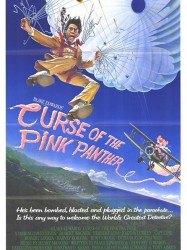
Curse of the Pink Panther (1983)
, 1h49Directed by Blake Edwards
Origin United-kingdom
Genres Comedy, Comedy thriller, Crime
Actors David Niven, Robert Wagner, Herbert Lom, Joanna Lumley, Capucine, Robert Loggia
Roles Sir Charles Litton
Rating43%





While investigating the theft of the Pink Panther diamond (in the previous film Trail of the Pink Panther), Chief Inspector Jacques Clouseau (Peter Sellers), hailed as France's greatest detective, disappeared at sea during a plane crash. His former superior, Chief Inspector Charles Dreyfus (Herbert Lom), is pressured to oversee Operation Paragon and utilize Interpol's fictitious Huxley Huxley 600 computer Aldous to find the world's greatest detective to solve the crime.
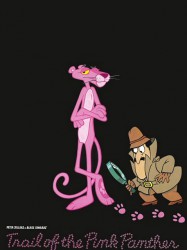
Trail of the Pink Panther (1982)
, 1h36Directed by Blake Edwards
Origin United-kingdom
Genres Comedy, Comedy thriller, Crime
Actors Peter Sellers, David Niven, Herbert Lom, Richard Mulligan, Joanna Lumley, Capucine
Roles Sir Charles Litton
Rating48%





When the famous Pink Panther diamond is stolen again from Lugash, Chief Inspector Clouseau (Peter Sellers) is called on the case despite protests by Chief Inspector Dreyfus (Herbert Lom). While on the case, Clouseau is pursued by the Mafia. Clouseau first goes to London to interrogate Sir Charles Lytton (having forgotten that he lives in the South of France). Traveling to the airport, he accidentally blows up his car, but mistakenly believes it an assassination attempt, and disguises himself in a heavy cast on the flight, which causes complications in the air and on land and leads to an awkward introduction to the Scotland Yard detectives at Heathrow. Meanwhile, Dreyfus learns from Scotland Yard that Libyan terrorists have marked Clouseau for assassination; but permits him to continue.
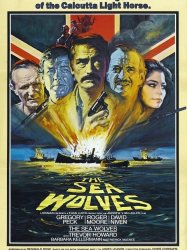
The Sea Wolves (1980)
, 2hDirected by Andrew V. McLaglen
Origin United-kingdom
Genres Drama, War, Thriller, Action
Themes Seafaring films, Transport films, Political films
Actors Gregory Peck, Roger Moore, David Niven, Trevor Howard, Barbara Kellerman, Patrick Macnee
Roles Col. W.H. Grice
Rating62%





During World War II, German submarines are sinking thousands of tons of British merchant shipping. British intelligence, based in India, believes that information is being passed to the U-Boats by a radio transmitter hidden on board one of three German merchant ships interned in Portuguese Goa. Since Portugal is neutral, the ships cannot be attacked by conventional forces.
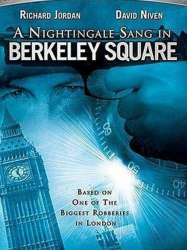 , 1h50
, 1h50Directed by Ralph Thomas
Origin United-kingdom
Genres Comedy, Comedy thriller, Action, Crime
Themes Heist films, Gangster films, Escroquerie
Actors Richard Jordan, Oliver Tobias, David Niven, Elke Sommer, Gloria Grahame, Richard Johnson
Roles Ivan
Rating57%





Tout juste sorti de prison, "Pinky" Green est déterminé à aller dans le droit chemin et, comme il est un électricien qualifié, il est engagé par une société appelée Global Group Security. Cette entreprise l'envoie travailler au système de sécurité de l'Atlantic and Pacific Bank dans le quartier de Mayfair. Un certain Ivan le Terrible le fait alors chanter pour qu'il les aide à dévaliser la banque de Berkeley Square.
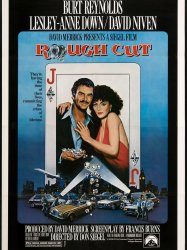
Rough Cut (1980)
, 1h52Directed by Don Siegel, Robert Ellis Miller, Peter Hunt
Origin United-kingdom
Genres Comedy, Comedy thriller, Romantic comedy, Action, Adventure, Crime, Romance
Themes Heist films, Gangster films, Escroquerie
Actors Burt Reynolds, Lesley-Anne Down, David Niven, Timothy West, Joss Ackland, Patrick Magee
Roles Chief Insp. Cyril Willis
Rating57%





Jewel thief Jack Rhodes, a.k.a. "Jack of Diamonds," is masterminding a heist of $30 million worth of uncut gems. He also has his eye on lovely Gillian Bromley, who becomes a part of the gang he is forming to pull off the daring robbery. Chief Inspector Cyril Willis from Scotland Yard, however, is blackmailing Gillian, threatening her with prosecution on another theft if she doesn't cooperate in helping him bag the elusive Rhodes, the last jewel in his crown before the Chief Inspector formally retires from duty.
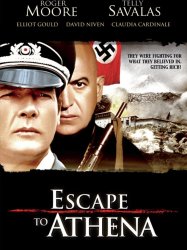
Escape to Athena (1979)
, 2h5Directed by George Cosmatos
Origin United-kingdom
Genres War, Comedy, Action, Adventure
Themes Prison films, Films about sexuality, Erotic films, Films about prostitution, Political films, Erotic thriller films
Actors Roger Moore, Telly Savalas, David Niven, Stefanie Powers, Claudia Cardinale, Richard Roundtree
Roles Professor Blake
Rating56%





In 1944 allied POWs, at a remote POW camp on an unnamed island, are forced to excavate ancient Greek artifacts. The camp Commandant, Major Otto Hecht (Roger Moore), who was an Austrian antiques dealer before the war, is sending some of the valuable pieces to his sister living in Switzerland.
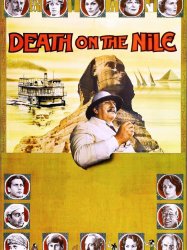
Death on the Nile (1978)
, 2h20Directed by John Guillermin
Origin United-kingdom
Genres Drama, Thriller, Crime
Themes Films set in Africa
Actors Peter Ustinov, Simon MacCorkindale, Lois Chiles, Mia Farrow, Bette Davis, George Kennedy
Roles Colonel Race
Rating72%





The film begins with a meeting between wealthy heiress Linnet Ridgeway (Lois Chiles) and her close friend Jacqueline de Bellefort (Mia Farrow). Jacquie wants her fiancé, Simon Doyle (Simon MacCorkindale), to work for Linnet, but he and Linnet have a whirlwind affair and end up marrying. While honeymooning in Egypt, they are continually hounded by the jilted Jacquie. In an attempt to get away, the Doyles pretend to go to the Cairo Railway Station before backtracking to board their booked cruise on a Nile paddle steamer, the S.S. Karnak.
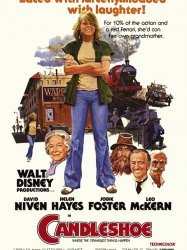
Candleshoe (1977)
, 1h41Directed by Norman Tokar
Origin USA
Genres Drama, Comedy-drama
Themes Heist films, Children's films
Actors David Niven, Helen Hayes, Jodie Foster, Leo McKern, Sydney Bromley, John Alderson
Roles Priory
Rating67%





Con-artist Harry Bundage (McKern) believes that the lost treasure of pirate captain Joshua St. Edmund is hidden at Candleshoe, the large country estate of Lady St Edmund (Hayes). Having gained access to Captain St. Edmund's hidden will with the help of a corrupt former cleaning woman at Candleshoe, Harry recruits American Casey Brown (Foster)—-an unwanted foster child and hooligan-—into the plot, employing her to pose as Lady St Edmund's granddaughter, the Honourable Margaret, 4th Marchioness of St Edmond, who was kidnapped at age four by her father and subsequently disappeared after her father's death. Casey is the right age to pass for Margaret and possesses several identifying scars that young Margaret was known to have. Casey agrees to go along with the con and discover further clues in exchange for a cut of the treasure.
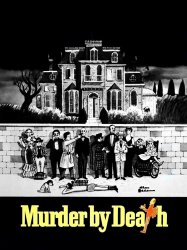
Murder by Death (1976)
, 1h34Directed by Robert Moore
Origin USA
Genres Thriller, Comedy, Comedy thriller, Crime
Actors Eileen Brennan, Truman Capote, James Coco, Peter Falk, Alec Guinness, Elsa Lanchester
Roles Dick Charleston
Rating72%





A group of five renowned detectives, each accompanied by a relative or associate, is invited to "dinner and a murder" by the mysterious Lionel Twain. Having lured his guests to his mansion managed by a blind butler named Jamessir Bensonmum, who is later joined by a deaf-mute cook named Yetta, Twain announces that it is in fact he who is the greatest detective in the world. In order to prove his claim, he challenges the guests to solve a murder which will take place at midnight; a reward of $1 million will be presented to the winner. The house is then electronically sealed off; doors, windows, etc.
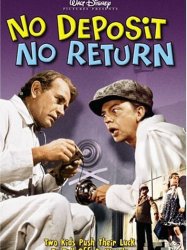
No Deposit, No Return (1976)
, 1h47Directed by Norman Tokar
Origin USA
Genres Comedy, Crime
Themes Heist films, Children's films
Actors David Niven, Darren McGavin, Don Knotts, Herschel Bernardi, Charles Martin Smith, Barbara Feldon
Roles J.W. Osborne
Rating62%





It is the beginning of the Easter holidays for brother and sister Tracy and Jay. However, it begins with disappointment as they hear their mother, whom they had expected to pick them up from school, is in fact in Hong Kong. Before she left, she made plans that the two children spend the vacation with their grandfather, Los Angeles billionaire J. W. Osborne. This does not excite the children, a reaction equal to that of Osborne himself, who has bad experiences with the children, and takes steps to ensure the same level of chaos is not repeated.
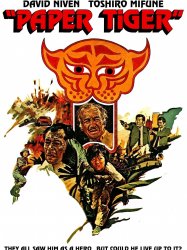
Paper Tiger (1975)
, 1h39Directed by Ken Annakin
Origin United-kingdom
Genres Drama, Adventure
Themes Monde imaginaire
Actors David Niven, Toshiro Mifune, Hardy Krüger, Irene Tsu, Ivan Desny, Miiko Taka
Roles 'Major' Walter Bradbury
Rating58%





Mr Bradbury (David Niven), an apparently well-educated, ex-military Englishman is hired as tutor to Koichi Kagoyama (played by Kazuhito Ando), the son of a Japanese ambassador. Bradbury becomes a trusted friend, who boasts about himself during his British Army service being a hero telling him "war stories", but some painful truths are revealed after he and the boy are kidnapped by political terrorists. It comes to the point when Mr Bradbury has to live up to the "action man" he makes himself out to be.
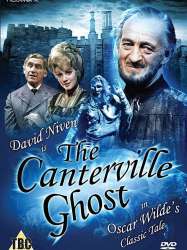
The Canterville Ghost (1974)
, 1hOrigin United-kingdom
Genres Fantastic, Comedy
Actors David Niven, James Whitmore, Audra Lindley, Lynne Frederick, Maurice Evans, Flora Robson
Roles Sir Simon de Canterville
Rating69%





Hiram B. Otis, un ministre américain, voyage en Angleterre avec sa famille et s'installe dans un château hanté sur le domaine de Canterville. À leur arrivée, Lord Canterville, l'ancien propriétaire des lieux, prévient M. Otis et sa famille que le fantôme de Sir Simon de Canterville hante le château depuis qu'il a tué sa femme Eleonore voilà quelques siècles. M. Otis ne croit pas à cette histoire, mais sa fille Virginia deviendra amie avec le fantôme.

Vampira (1974)
, 1h28Directed by Clive Donner
Origin United-kingdom
Genres Fantastic, Comedy, Horror comedy, Horror
Themes Films about magic and magicians, Dracula films, Vampires in film, Comedy horror films
Actors David Niven, Teresa Graves, Jennie Linden, Veronica Carlson, Nicky Henson, Linda Hayden
Roles Count Dracula
Rating44%





Count Dracula is an old vampire who, because of his advanced age, is forced to host tours of his castle to get new victims. In an attempt to revive his long-lost love, Vampira, Dracula sets out to collect blood from the bevy of Playboy Playmates living at his castle. However, one of the Playmates whose blood is drained is black, turning the revived Vampira into a black woman.
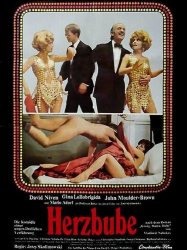
King, Queen, Knave (1972)
, 1h34Directed by Jerzy Skolimowski
Origin USA
Genres Comedy
Themes La provence
Actors Gina Lollobrigida, David Niven, John Moulder-Brown, Mario Adorf, Barbara Valentin, Jerzy Skolimowski
Roles Charles Dreyer
Rating55%





The film follows a young man named Frank, who comes to live with his Uncle and Aunt. Slowly, he starts to fantasize about a relationship with his Aunt Martha.
 Connection
Connection
